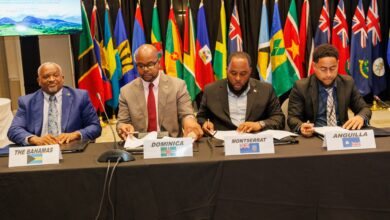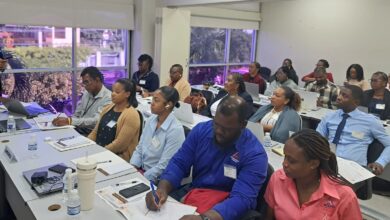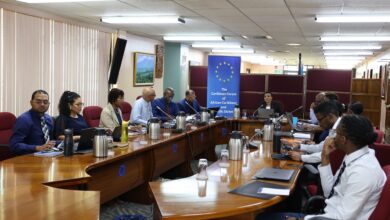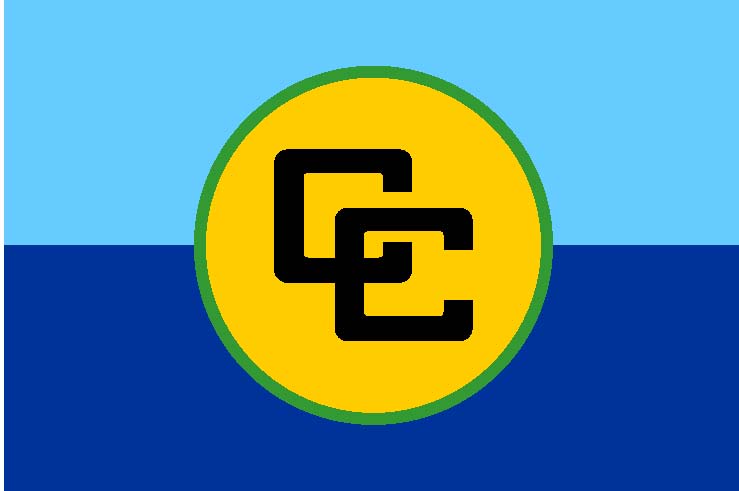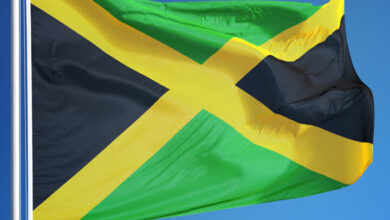On January 30, 2006, at an historic ceremony on the UWI Mona Campus, the leaders of six CARICOM countries signed a declaration of compliance with the CARICOM Single Market. They were Barbados, Belize, Guyana, Jamaica, Suriname and Trinidad and Tobago. Six other countries, members of the Organisation of East Caribbean States (OECS), have undertaken to become Single Market compliant no later than June 30 of this year. These are Antigua and Barbuda, Dominica, Grenada, St. Kitts and Nevis, St. Lucia, and St. Vincent and Grenadines.
Three other countries that are members of the Caribbean Community are not, at this point, within the CSME arrangements. They are the Bahamas, which has opted to stay out for the time being; Haiti, whose accession is awaiting the re-establishment of political normalcy; and Montserrat, which has legal issues due to its constitutional status.
In my experience, based solely on casual conversations with current and past UWI students, awareness of the far-reaching implications for their employment opportunities and career prospects has been slow to percolate throughout the academic community within the Region.
UWI graduates alone are estimated to number over 50,000. Many are living outside of the Caribbean. As long as they hold national CARICOM passports, whether living at home and abroad, they are now entitled to seek employment, live and work in any of the 12 countries taking part in the Single Market. The entire region has become ‘home’.
This means that a Jamaican graduate, for instance, now has access to an economic space that is two-and-a-half times larger in population and over three times larger in GDP, as that of his island home. The smaller the member state, the greater the increase in economic opportunity afforded by the CARICOM Single Market. For a graduate of St. Kitts and Nevis the difference is 150 times in population and 70 times in GDP.
Whether the lack of CARICOM Single Market awareness is the fault of governments, the CARICOM Secretariat, the University, or the media, hardly matters. For my own part, I believe in self-responsibility. I hold that it is the job of graduates themselves, as the core of the educated elite of Caribbean society, to acquire information about the rights and opportunities it confers on them and to press responsible agencies to put these into effect.
A common misconception is that the right to free movement of skilled persons is limited to UWI graduates. I was surprised to learn that at least one High Commission in London of a CARICOM country, was instructed by its capital to give out this information to interested persons. In fact, the right of free movement is now enjoyed by graduates of all recognized universities. And the categories of skilled persons to which free movement applies also include artists, musicians, sportspersons and media workers.
But the devil in this case is not so much ‘in the details’, but in the implementation.
To exercise his or her free movement rights, a person must first apply to their home government for a ‘Certificate of CARICOM Skills Recognition’. Normally the application would be made to the ministry responsible for labour affairs. Appropriate documentation must be provided, including a Police certificate. This part of the process can take several weeks.
In the case of Caribbeans living in the Diaspora, the application would need to be made through the nearest consulate or its equivalent, or directly to the relevant ministry in the home country. This will add further time to the process.
Once in possession of this certificate, they are entitled to travel to any other CARICOM Single Market-participating member and to stay and work without a Work Permit indefinitely. CARICOM governments have now agreed that they will recognize Certificates issued in any Member state as proof of eligibility, although they reserve the right to verify authenticity. Some countries also allow application to the host country, if the CARICOM national has already been living there.
However, there is scope to make the procedure more accessible and user-friendly – putting it on-line for instance – so that people will be encouraged to check out employment opportunities within the region as a whole. This is particularly important to increase its appeal to the huge Caribbean Diaspora. In this way the CARICOM Single Market might help reduce the brain drain, encourage return migration, and tap into much-needed skills available in the overseas Caribbean community.
There is also the matter of the ‘Contingent Rights’ of CARICOM skilled persons. This refers to the right of a spouse to work without a Work Permit, of children to attend public schools, and of dependants to access social services. At the time that they signed the Declaration of Single Market Compliance in January 2006, CARICOM Governments declared their intention to ‘grant to eligible nationals of participating Member States access to health care, education and such other social services as are necessary for their enjoyment of CSME rights, subject to considerations of national capacity;’. A Protocol is being negotiated to give effect to these rights. Pending this, their enjoyment will still be subject to administrative discretion, which is not an ideal situation.
Much the same opportunities and issues arise in respect of the free movement of services, but on a larger scale. Articles 30-37 of the Revised Treaty of Chaguaramas accord to self-employed providers of services of a “professional, industrial, commercial or artisanal nature” the right to provide their services in any member state. This is a category that includes not only professionals like doctors, lawyers, accountants and engineers; but also artisans like plumbers, masons and carpenters and other self-employed people such as hairdressers, barbers and dressmakers. There are, literally, hundreds of thousands of such self-employed service providers throughout CARICOM.
In addition, CARICOM nationals also now have the legal right to establish businesses – both small and large – and to move capital between among member states.
Here again is a challenge to turn a legal right into a daily reality. Common standards of certification for service providers in every occupation will need to be agreed. National and regional registries will need to be established. A common procedure of certification, by which all member states agree to be governed, will need to be put into operation.
Officials are working on these matters. But they cannot be left solely to governments and officials. Skilled persons, service providers and owners of small businesses are going to have to organize themselves in order to exercise these rights. They will have to think and act regionally, to challenge governments to honour their publicly made commitments, and to offer solutions aimed at simplifying the procedures and making them user-friendly.
UWI graduates are not only among the principal potential beneficiaries of the CARICOM Single Market. They could, and should, be one of its principal driving forces. In doing so, they would be helping not only themselves but also the entire region; as it seeks to restructure its economies in the effort to meet the challenges of a globalizing world.
———-
Professor Norman Girvan is well-known throughout the region for his scholarship and public advocacy in issues relating to Caribbean development and integration. At present he is a Professional Research Fellow at the UWI Graduate Institute of International Relations, St. Augustine Campus.
The former Secretary-General of the Association of Caribbean States (2001-2004) combines an academic background with experience in government and international organisations. He is the author of at least 11 books and monographs and over 80 journal articles. His research and publications span the subjects areas of foreign capital and transnational corporations, technology transfer and development, debt, relations with the IMF, and Caribbean development and integration. He has served as advisor to regional governments and consultant to several regional and international organizations, and holds a number of awards and distinctions. His latest book, Cooperation in the Greater Caribbean: The Role of the Association of Caribbean States, was recently published by Ian Randle Publishers.
Professor Girvan received his BSc degree in economics from the University College of the West Indies (London University) and PhD in economics from London School of Economics.
Taken from The Pelican: A Magazine of the University of the west Indies issue 1: July-December, 2006

